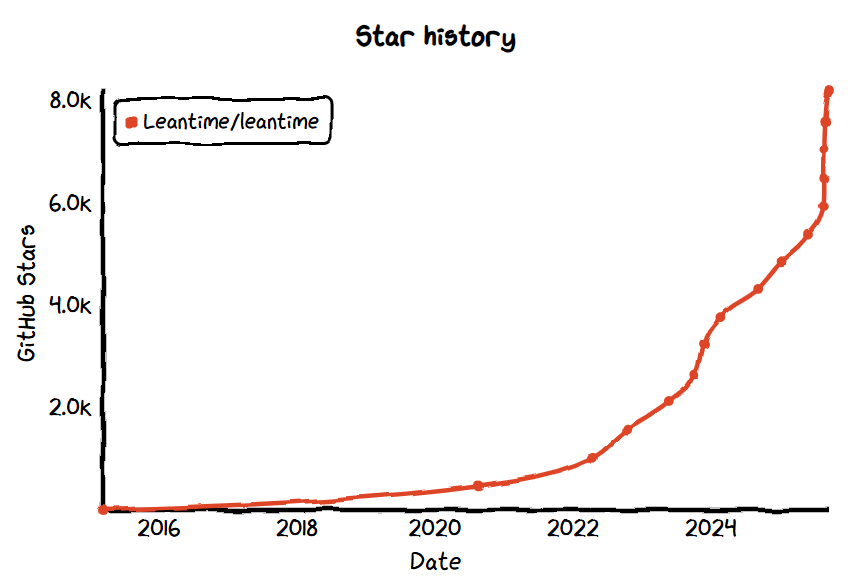📝 Note: This article was last updated on Jan. 21, 2026. We regularly update the information to ensure you have the latest insights! 😊
Last week, we recommended a set of project management tools for small businesses, based on real discussions and needs shared by Reddit users:
Project Management Systems for Small Businesses: Real Needs from Reddit Users
For developers and technical teams, however, open-source tools often provide even greater advantages. Not only do they help reduce costs, but they also allow for higher levels of customization and extensibility. The popularity of this topic is clear: the project-management tag on GitHub already has 19.9k followers, highlighting the strong community interest in open-source project management solutions.
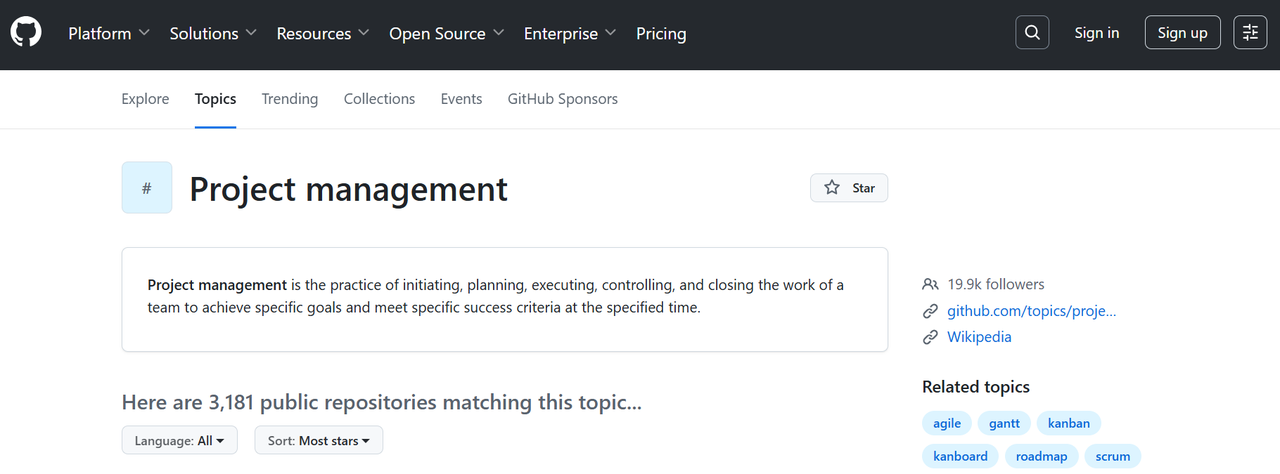
Based on this topic, we selected the top 10 projects ranked by GitHub Stars. These range from lightweight Kanban boards to full-featured enterprise-grade platforms, covering task management, team collaboration, and R&D workflows. Our goal is to help developers evaluate each tool’s practical usability, scalability, and real-world application value.
In making our recommendations, we focused on three dimensions:
- Core Value – How the tool addresses real pain points in project management for development teams.
- Unique Highlights – Which features set it apart from other tools.
- Recommended Scenarios – The team size and development model it best suits.
Below, we’ll introduce the top 10 open-source project management tools on GitHub, giving you a clear overview of their features and ideal use cases.
💬 Hey, you’re reading the NocoBase blog. NocoBase is the most extensible AI-powered no-code/low-code development platform for building enterprise applications, internal tools, and all kinds of systems. It’s fully self-hosted, plugin-based, and developer-friendly. → Explore NocoBase on GitHub
🎉 NocoBase recently launched a project management solution — open-source, fully controllable, and highly extensible. Try it out!
No.1: AppFlowy

Overview
AppFlowy is an open-source collaboration and note-taking platform built with Flutter and Rust, positioned as an alternative to Notion. It provides teams with an integrated environment for documents, tasks, and knowledge bases. Developers can freely customize modules without the restrictions of commercial SaaS tools.
GitHub Star: 65.5k
GitHub: https://github.com/AppFlowy-IO/AppFlowy
Website: https://appflowy.com/
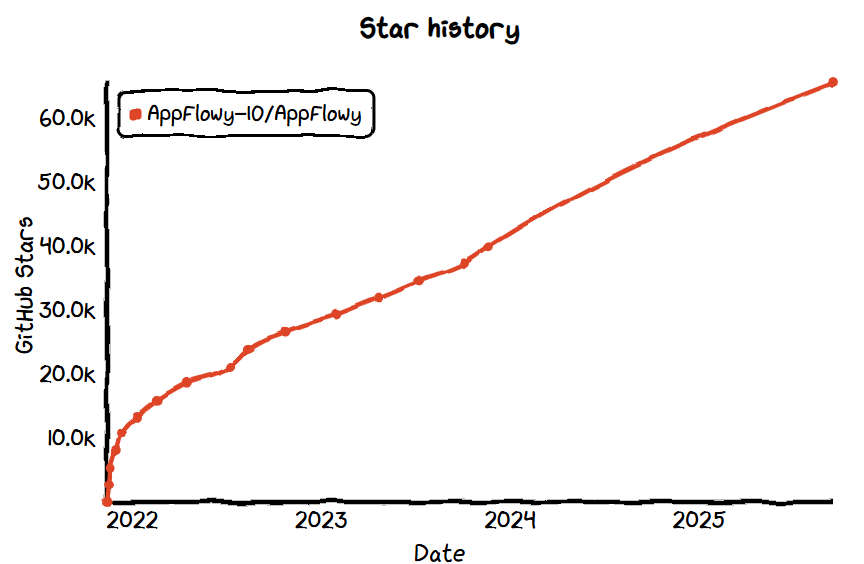
Key Highlights
- Seamless integration of docs and tasks – AppFlowy connects document editing with task management. Meeting notes or requirement docs can be directly turned into actionable tasks, reducing the gap between “documentation” and “execution.”
- Highly customizable block system – Unlike Notion’s closed ecosystem, AppFlowy provides an extensible block model. Developers can create or modify components to fit unique project workflows.
- Privacy and data control – Supports local hosting and storage, ensuring full control over knowledge bases and project data—especially important for security-sensitive teams.
Recommended Scenarios
- R&D or creative teams that need integrated documentation and task management.
- Organizations with strict requirements for data privacy and on-premise hosting.
- Developer teams who want to build a customizable knowledge and collaboration platform within an open-source ecosystem.
No.2: Plane
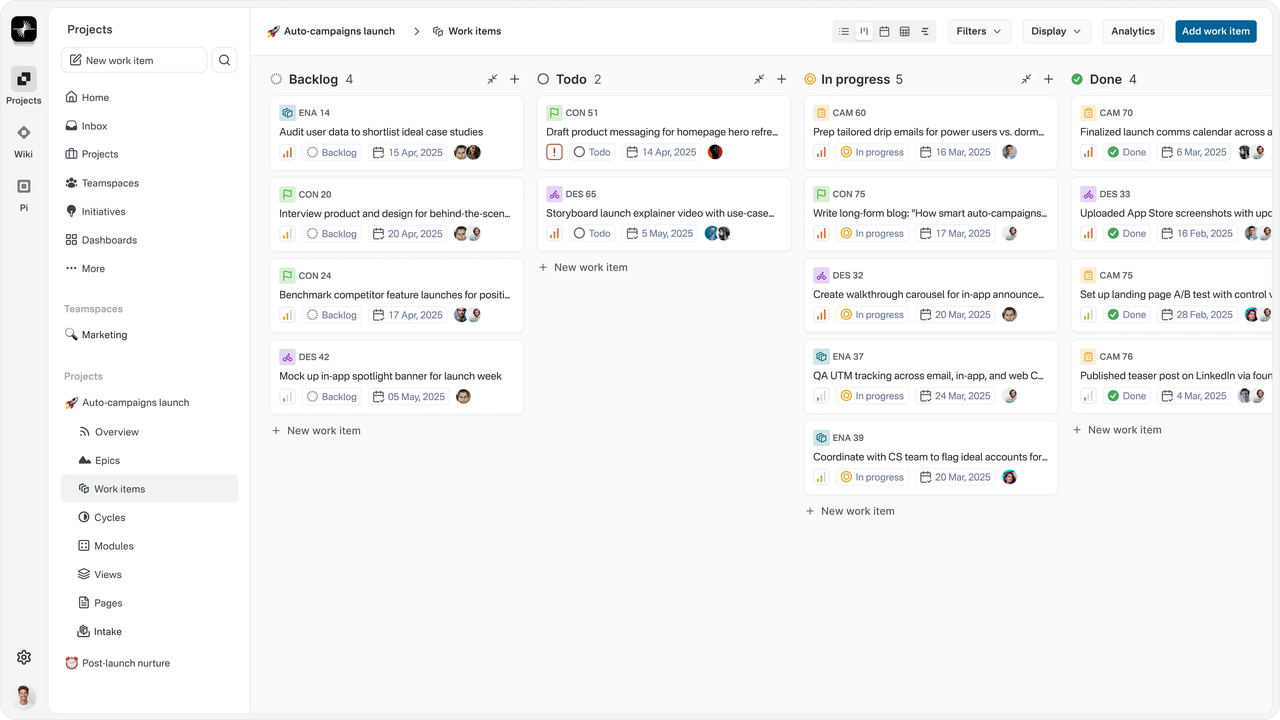
Overview
Plane is an open-source project management tool designed for a lightweight agile experience. With its clean, modern UI, it focuses on tasks, iterations, and issue tracking, making it a strong open-source alternative to Jira.
💡 Read more: 6 Best Open Source Alternatives to Jira
GitHub Star: 38.7k
GitHub: https://github.com/makeplane/plane
Website: http://plane.so/
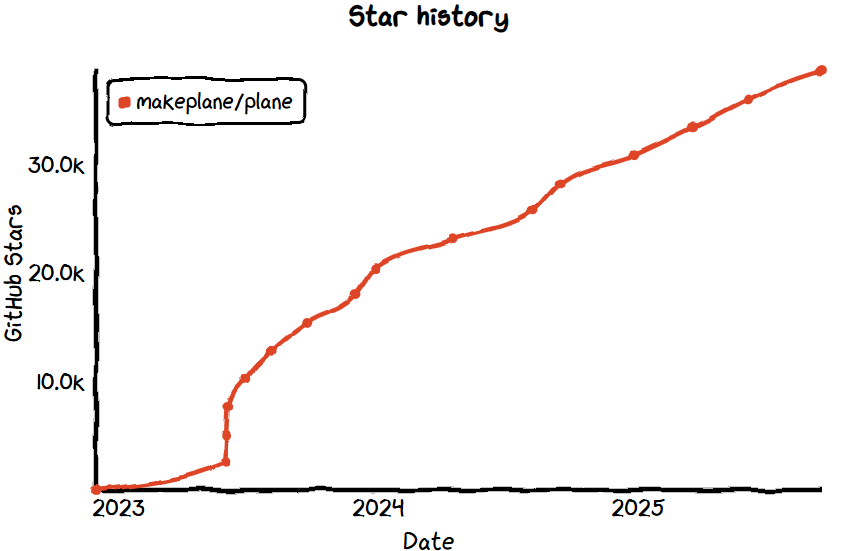
Key Highlights
- Straightforward sprint management – Plane includes essential features like backlog, sprints, and issue tracking, helping teams quickly adopt agile practices without unnecessary complexity.
- Modern UI & smooth collaboration – Prioritizes usability and workflow fluidity, allowing developers to stay focused on tasks.
- Lightweight deployment – Built with a modern, lightweight stack, Plane is easy to run with minimal server resources.
Recommended Scenarios
- Teams seeking a Jira alternative but without the overhead of enterprise-level complexity.
- Startups or small to mid-sized teams looking for simplicity and ease of use.
- Developer teams who value a clean interface and smooth task experience.
No.3: ERPNext
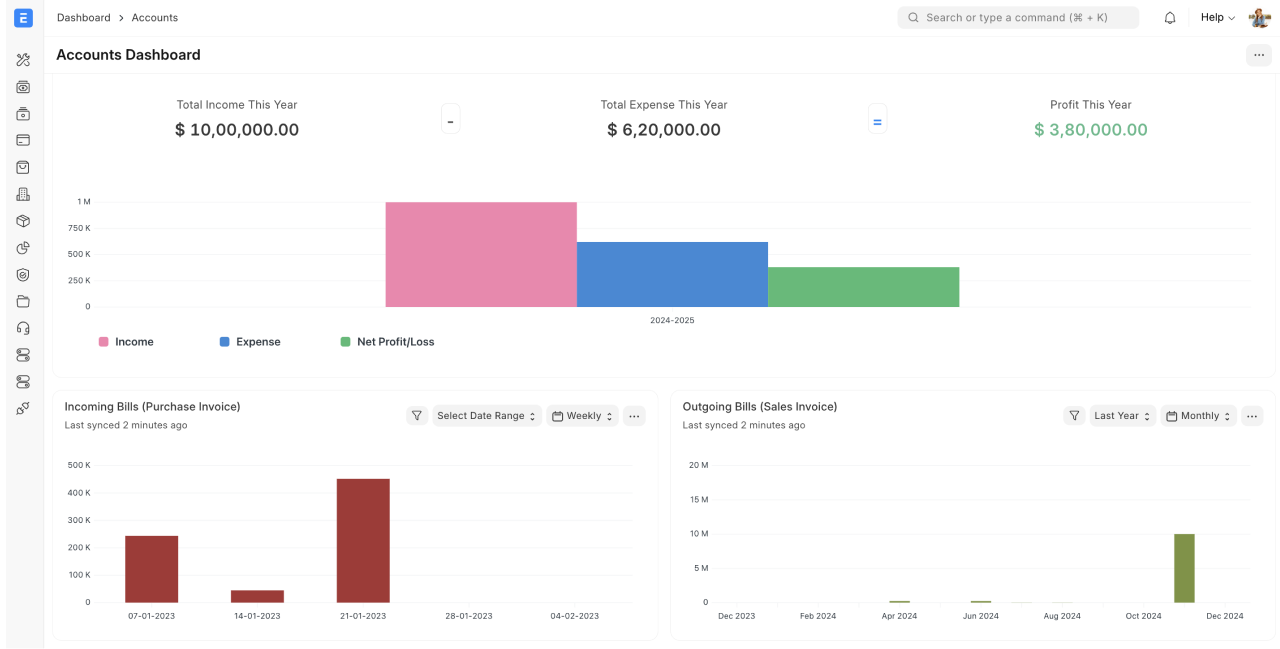
Overview
ERPNext is a comprehensive open-source ERP system. In addition to core enterprise modules like finance, HR, and inventory, it also includes a full-fledged project management module. It’s ideal for organizations that need tight integration between project management and enterprise resource planning.
GitHub Star: 28.3k
GitHub: https://github.com/frappe/erpnext
Website: https://frappe.io/erpnext
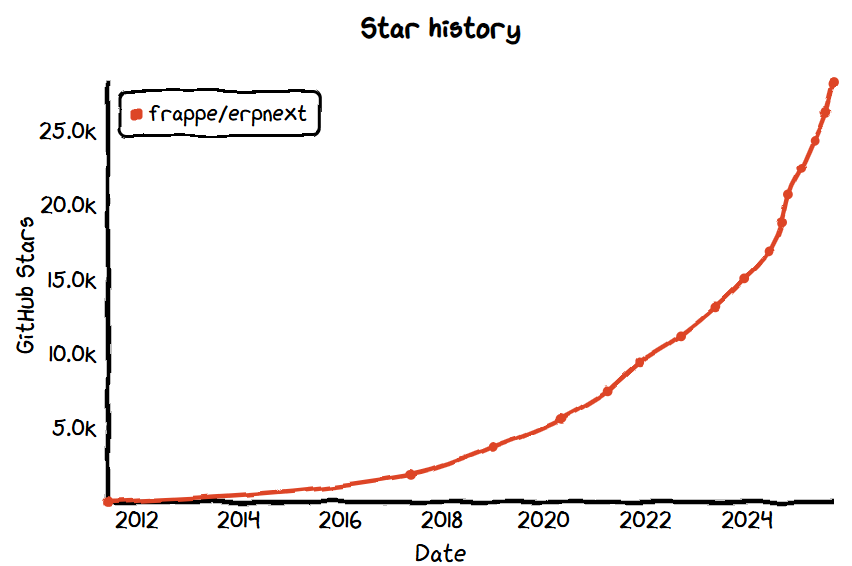
Key Highlights
- Integrated projects and operations – Unlike standalone project management tools, ERPNext connects projects with finance, HR, work orders, and inventory, ensuring execution aligns with business operations.
- Task & resource allocation – Supports budgeting, cost tracking, and timesheet management, perfect for teams that need resource utilization and expense monitoring.
- Robust reporting – Real-time dashboards for progress, cost, and ROI analysis, helping leadership make informed decisions.
Recommended Scenarios
- Manufacturing, services, and industries requiring ERP + project management integration.
- Organizations with strict needs for budgeting, cost control, and resource allocation.
- Mid-to-large enterprises looking to unify project workflows with operational processes.
No.4: Focalboard
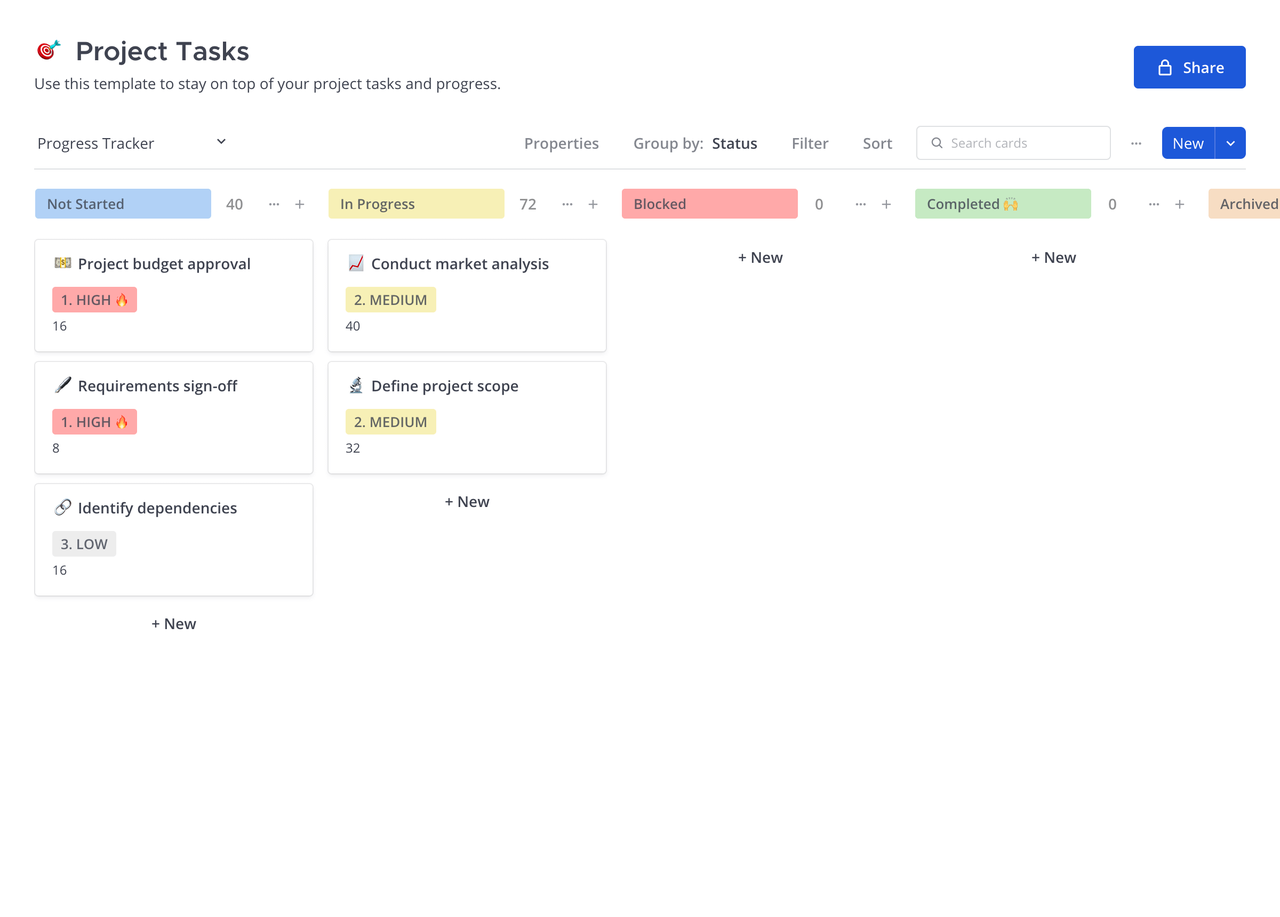
Overview
Focalboard is an open-source task and project management tool launched by Mattermost. It’s positioned as an open-source alternative to Asana, Trello, and Notion. Focalboard can run standalone or deeply integrate with Mattermost, becoming a hub for collaboration and task workflows.
GitHub Star: 25k
GitHub: https://github.com/mattermost-community/focalboard
Website: https://www.focalboard.com/
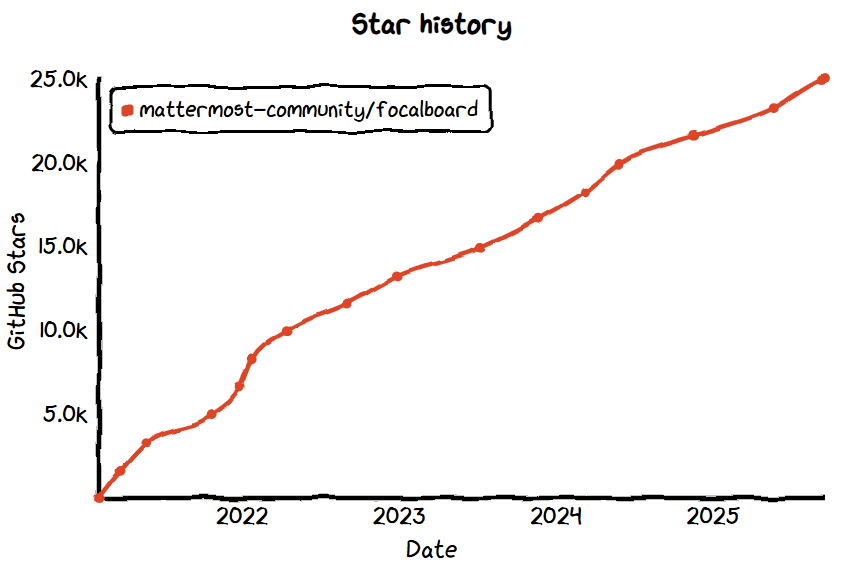
Key Highlights
- Kanban-driven task management – Built around Kanban workflows, making it ideal for backlog, sprint tasks, and cross-team collaboration. Familiar and friendly for Trello or Jira Kanban users.
- Chat integration – Seamlessly integrates with Mattermost, so task updates, discussions, and notifications all stay in one place.
- Lightweight self-hosting – Lower deployment costs compared to commercial tools, easy to run locally or on servers.
Recommended Scenarios
- Teams already using Mattermost who want a unified platform for chat and task management.
- Dev and ops teams preferring Kanban workflows.
- Organizations seeking a low-cost open-source Trello alternative.
No.5: Huly
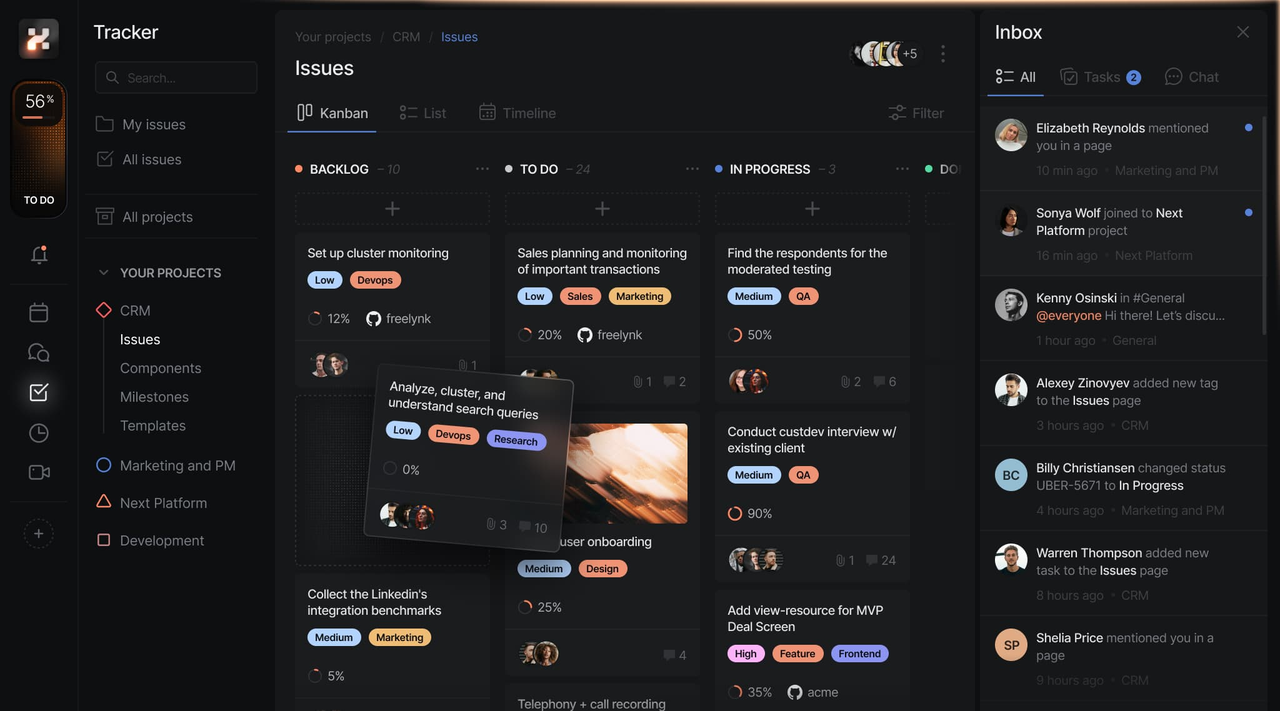
Overview
Huly is a modern open-source project management and collaboration platform, designed as an all-in-one alternative to Linear, Jira, Slack, and Notion. With a focus on speed, simplicity, and developer experience, Huly caters to technical teams looking for streamlined iteration planning, task tracking, and engineering collaboration.
GitHub Star: 23.1k
GitHub: https://github.com/hcengineering/platform
Website: https://huly.io/
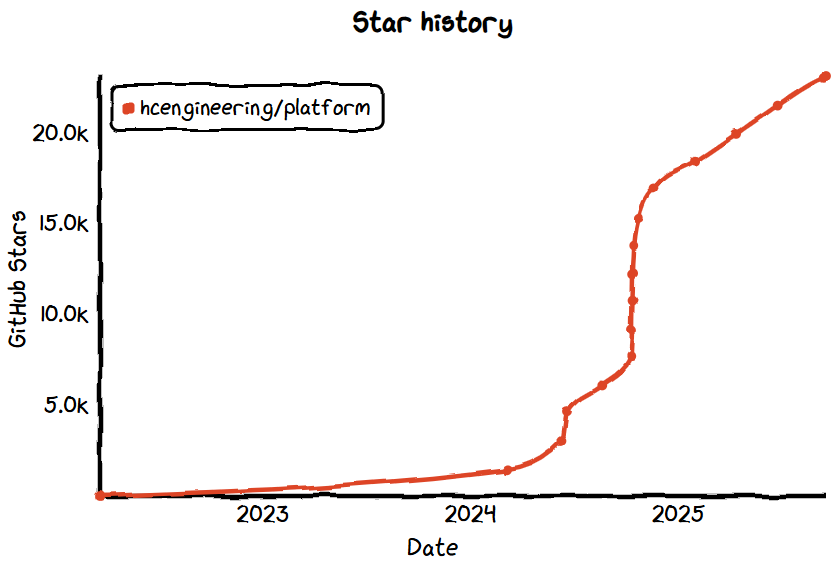
Key Highlights
- All-in-one team hub – Combines the core functionality of Linear, Jira, Slack, and Notion into one platform, enabling developers to plan, chat, collaborate on docs, and track progress in a single environment.
- Two-way GitHub sync – Deep integration with GitHub Issues and Projects. Updates sync both ways, so developers can manage tasks in Huly while keeping GitHub fully up to date.
- Virtual office for real-time work – Blends project management with remote collaboration. Provides customizable virtual offices with high-quality audio/video conferencing and external guest access.
Recommended Scenarios
- Technical teams looking for a streamlined Jira alternative.
- Startups and growing teams that prioritize speed and development efficiency.
- Teams needing close integration between project management and GitHub workflows.
No.6: NocoBase
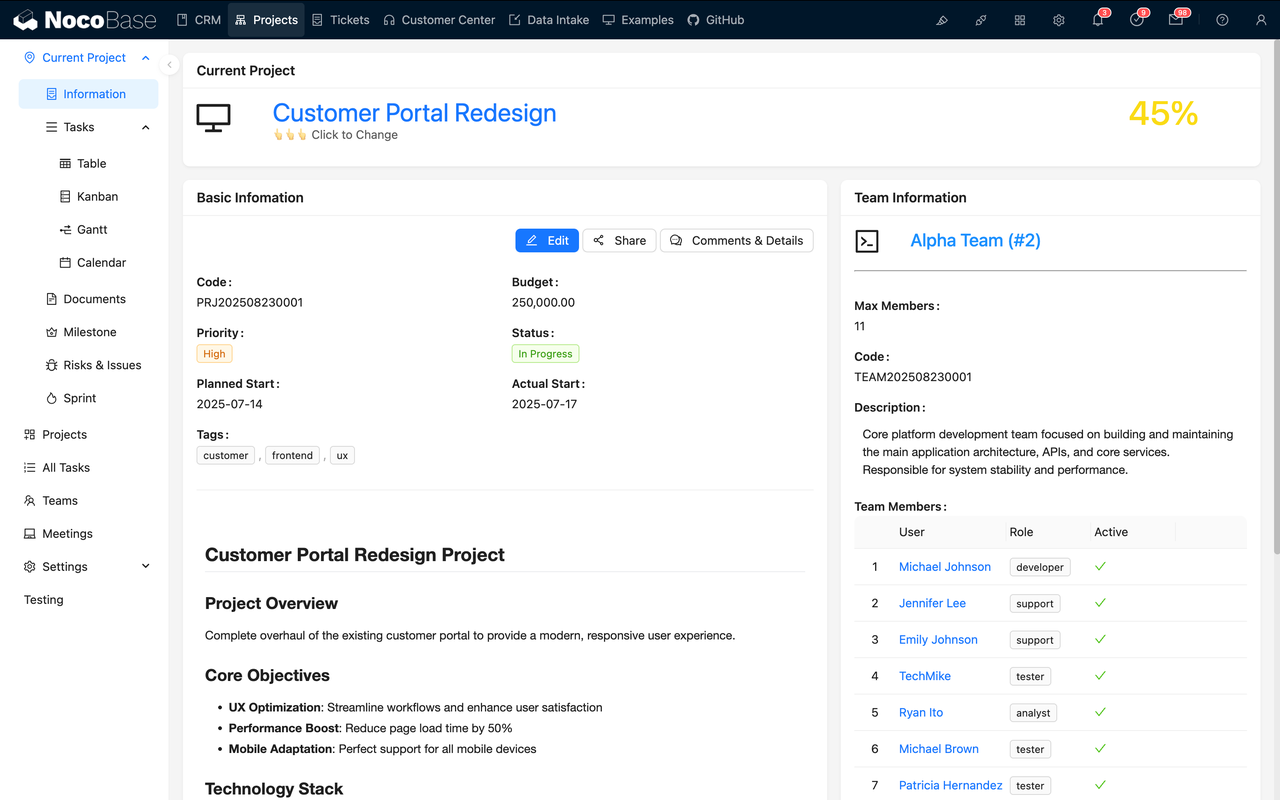
Overview
NocoBase is a highly extensible, open-source, AI-driven no-code platform. Instead of predefined features, it provides flexible data models and a plugin mechanism, combined with AI-driven capabilities, enabling teams to build project management modules entirely based on their own requirements.
🎉 NocoBase recently launched a project management solution — open-source, fully controllable, and highly extensible. Try it out!
GitHub Star: 21.3k
GitHub: https://github.com/nocobase/nocobase
Website: https://www.nocobase.com/

Key Highlights
- Complete Project Lifecycle – From requirement gathering and design to testing, release, and maintenance, NocoBase provides data-model-driven end-to-end management. Each stage can have its own tables and workflows, ensuring traceability, quantifiability, and continuous optimization.
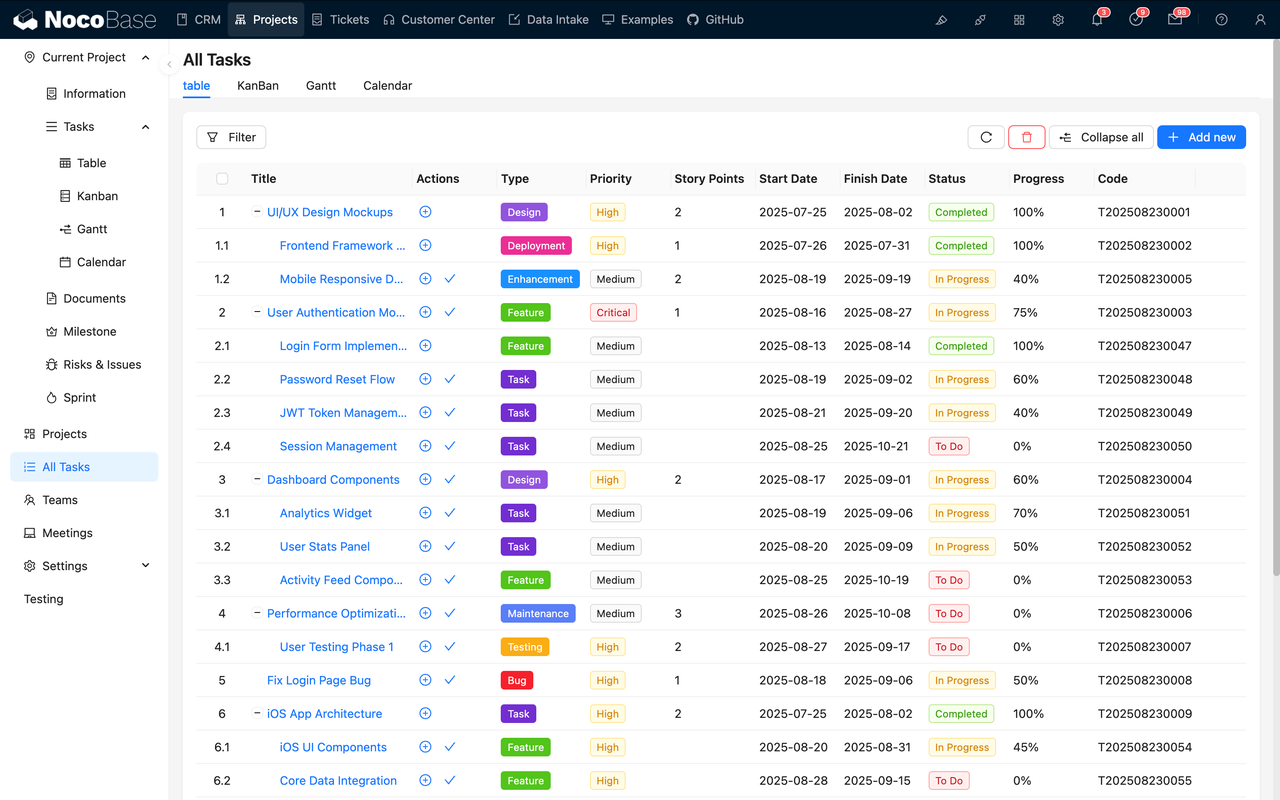
- Multiple Task Views – NocoBase supports multiple task views, including tables, Kanban boards, Gantt charts, and calendars. Teams can switch views flexibly based on project stages: using Gantt charts to break down milestones and dependencies during planning, managing iteration backlogs with Kanban during execution, and tracking defects and status in tables during testing. On top of this, AI-driven AI Employees can understand the active view structure and selected task data to assist with day-to-day work.
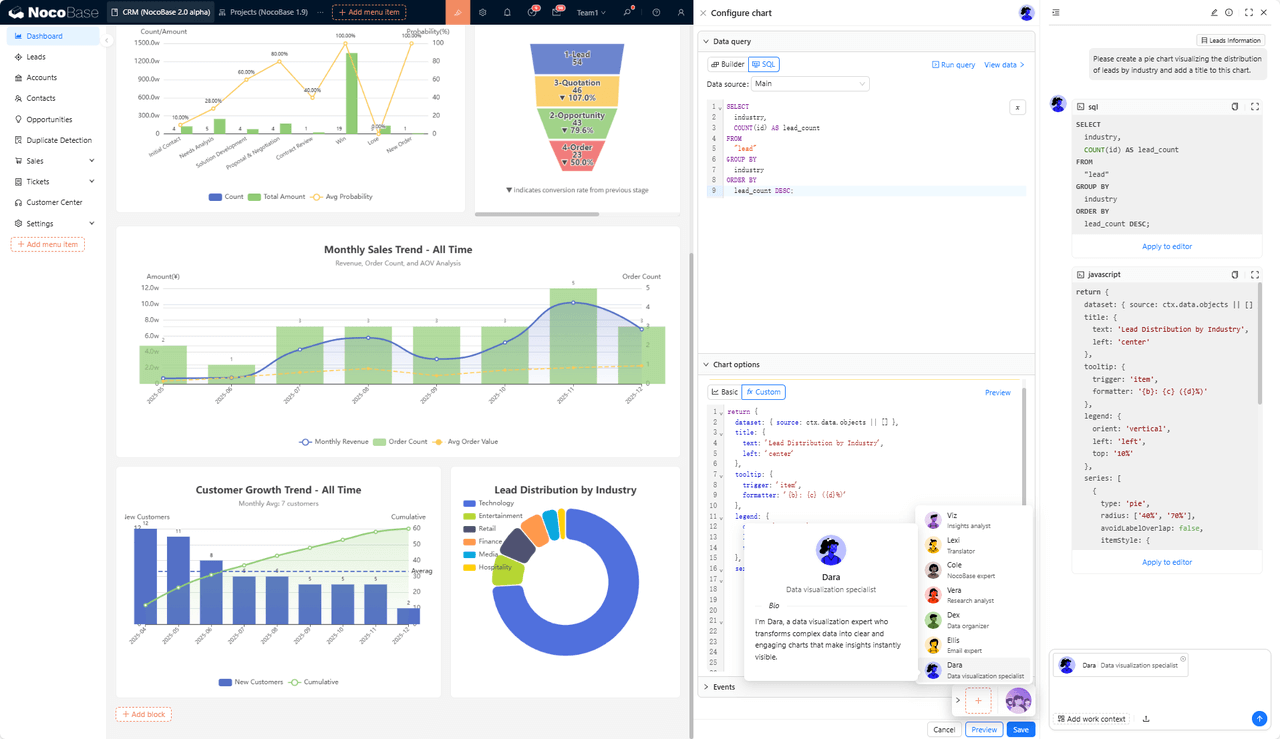
- Granular Access Control – Role-level, condition-based, and field-level permissions allow fine-tuned collaboration. For example: developers can only edit fields in their tasks, QA can add bugs but not alter progress, while PMs have full visibility.

- Configurable Workflows – Workflows support conditions, task assignments, and notifications. For example, reminders can be automatically sent when deadlines approach.
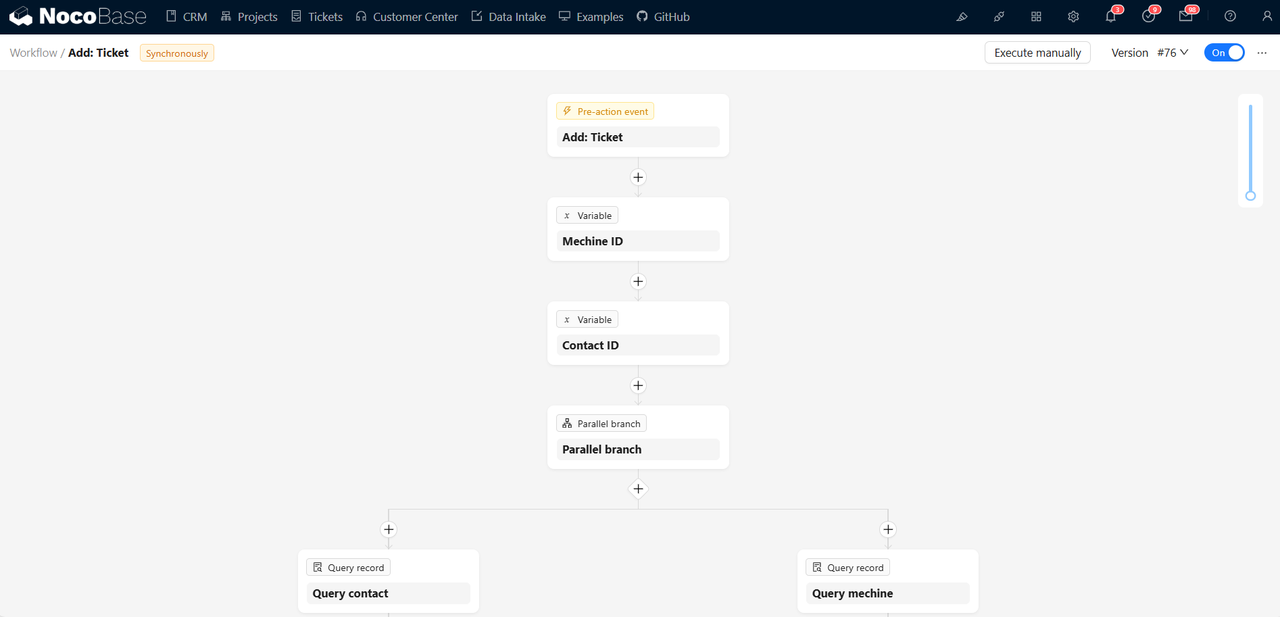
- AI employees embedded in the system: Seamlessly integrate AI capabilities into user interfaces, business workflows, and data contexts, enabling AI to be practically applied in real enterprise scenarios.
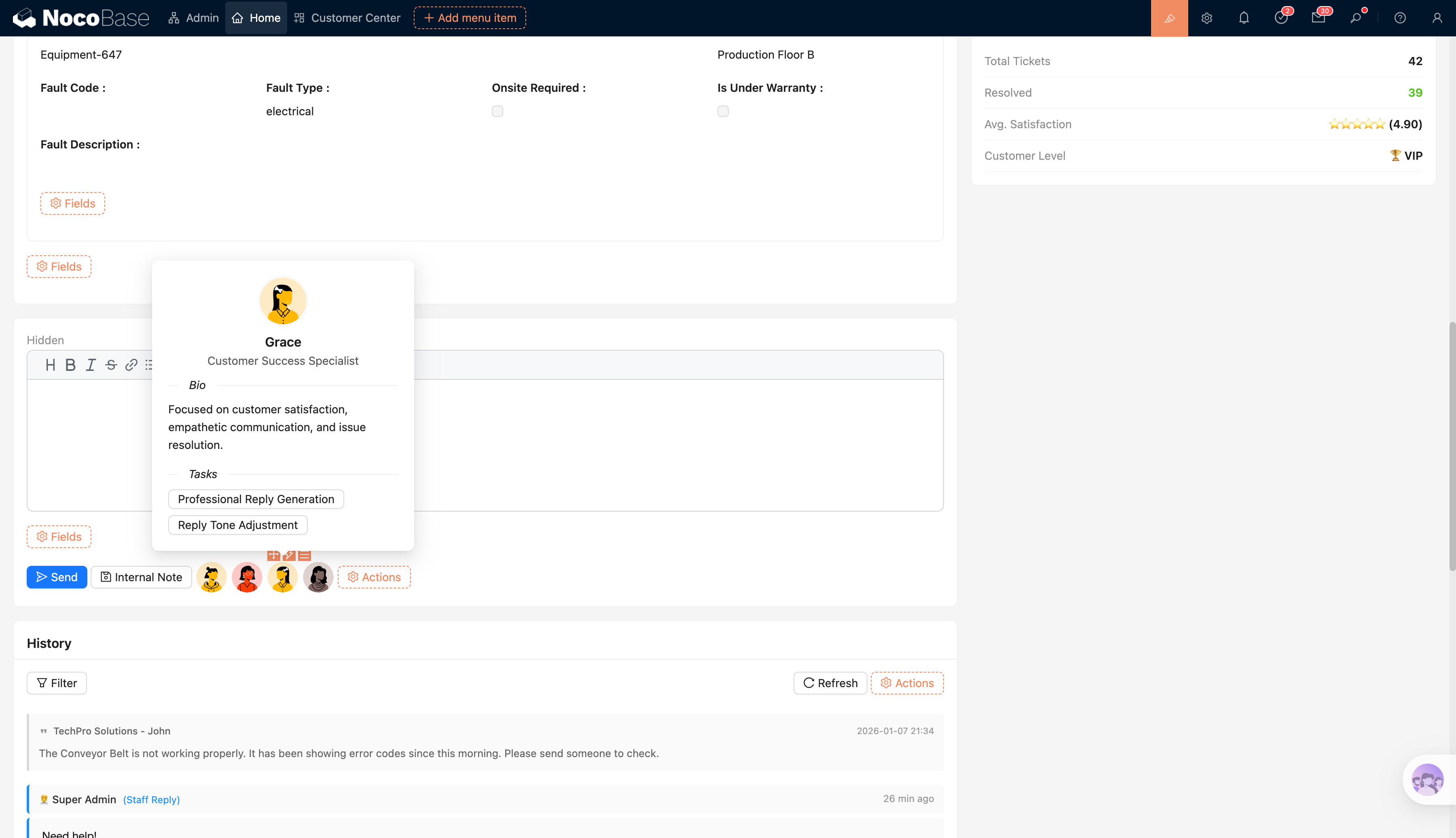
Recommended Scenarios
- Technical teams needing a project management platform that grows with business changes.
- Teams with multi-role, multi-permission collaboration requirements.
- Enterprises combining agile iteration with traditional project management on the same platform.
No.7: OpenProject
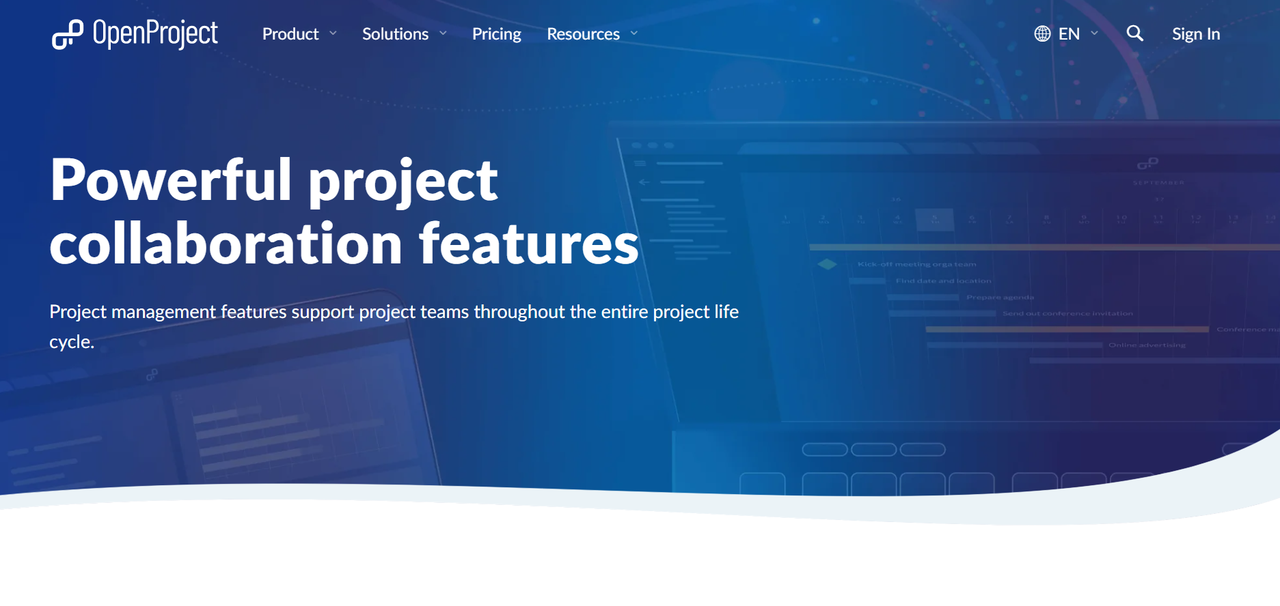
Overview
OpenProject is a mature project management platform supporting classic, agile, and hybrid methods in a secure environment. Widely adopted in the European public sector and large enterprises, it emphasizes compliance, security, and long-term maintainability.
GitHub Star: 12.7k
GitHub: https://github.com/opf/openproject
Website: https://www.openproject.org/
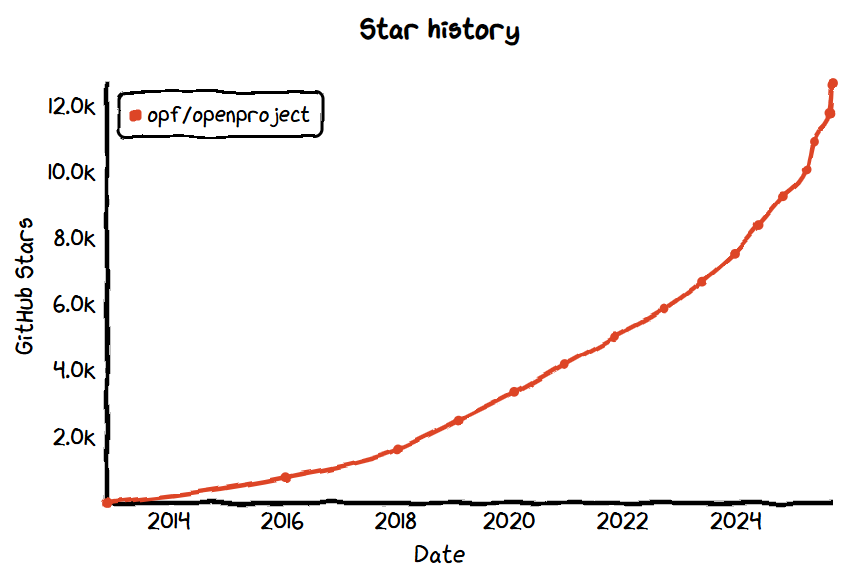
Key Highlights
- Hybrid Project Management – Supports waterfall, agile (Scrum, Kanban), or hybrid approaches. Ideal for enterprises balancing long-term planning with agile iteration.
- Robust Requirements & Documentation Management – Includes modules for requirements, specs, test cases, integrated with tasks, bugs, and milestones — ensuring traceability from concept to delivery.
- Enterprise-Grade Security & Permissions – Fine-grained access control and compliance features make it especially suitable for industries with strict security standards.
Recommended Scenarios
- Large teams managing cross-department and multi-phase projects.
- Industries like government, healthcare, and finance requiring strict compliance.
- Enterprises combining agile development with long-term roadmaps.
No.8: PLANKA
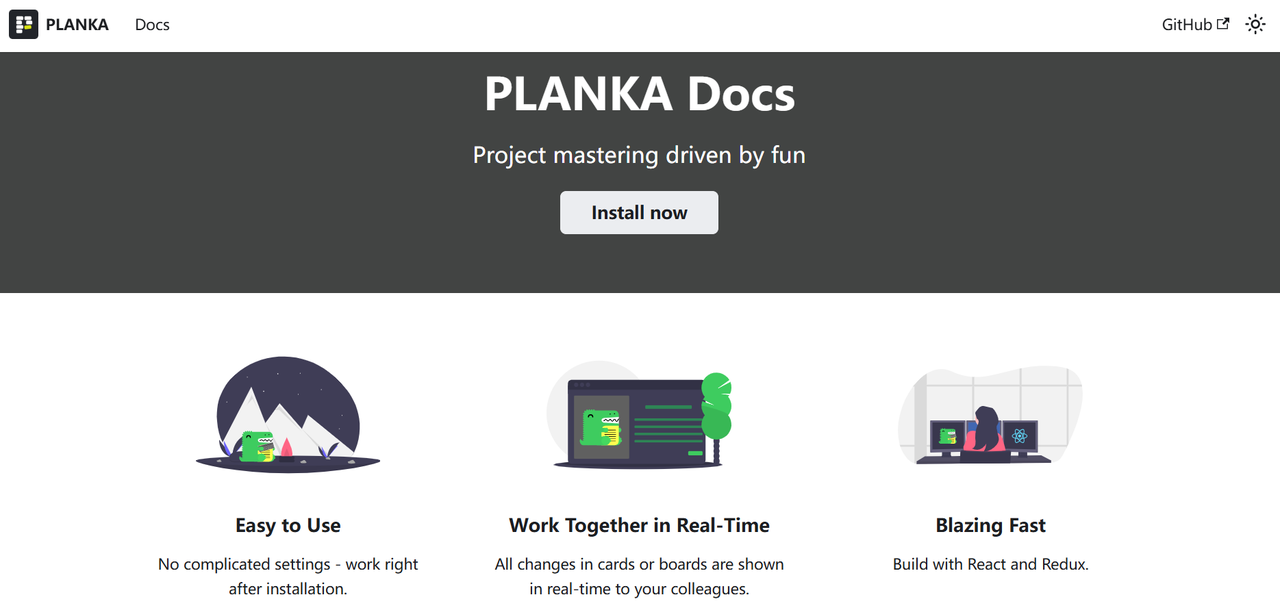
Overview
Planka is a lightweight open-source project management tool that emphasizes simplicity and intuitive interaction — ideal for teams wanting a quick, low-barrier setup.
GitHub Star: 10.6k
GitHub: https://github.com/plankanban/planka
Website: https://docs.planka.cloud/
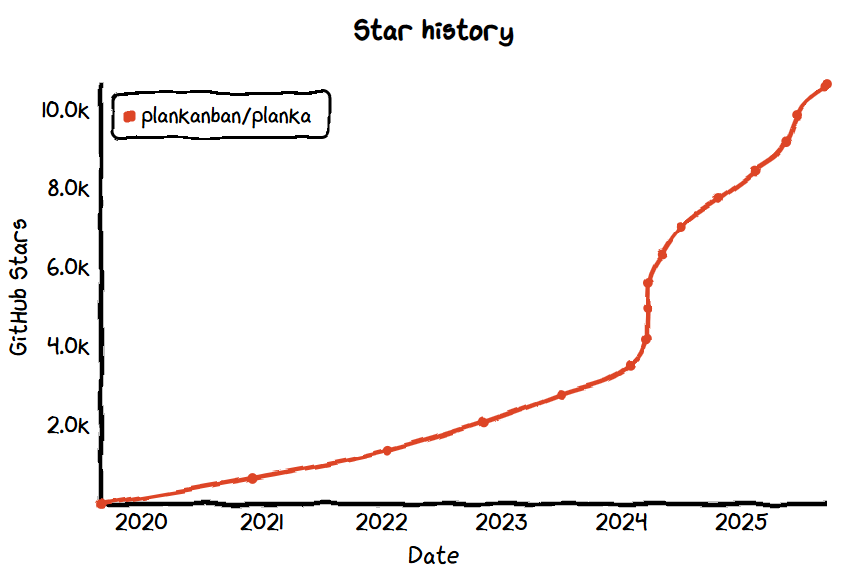
Key Highlights
- Minimal Kanban Experience – Focused on Kanban boards with cards, labels, assignments, and deadlines. Almost no learning curve for developers.
- Real-Time Collaboration – Task updates, comments, and progress sync instantly, keeping distributed teams aligned.
- Simple Deployment – Lightweight architecture with low server resource needs, enabling fast setup.
Recommended Scenarios
- Small teams seeking a self-hosted Trello alternative.
- Teams preferring minimal UI and core functions without complexity.
- Teams valuing lightweight deployment and low maintenance costs.
No.9: Kanboard
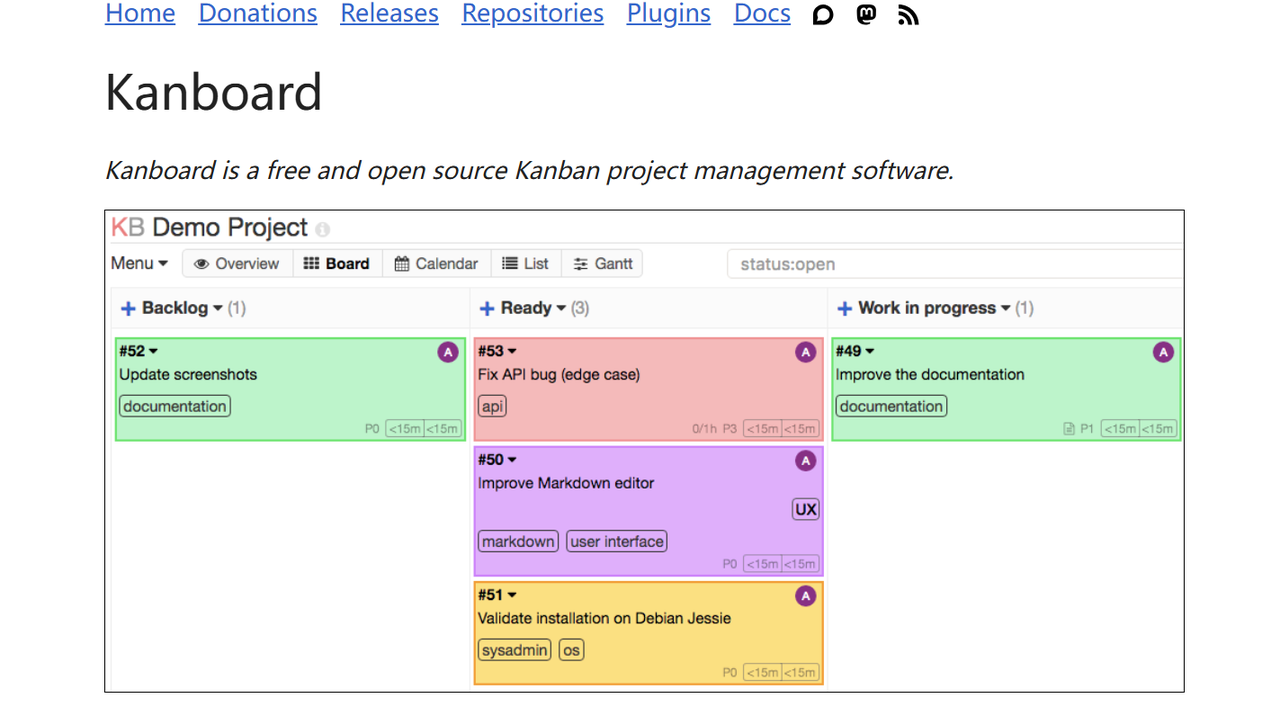
Overview
Kanboard follows a “minimalism + automation” philosophy, focusing on task visualization and workflow automation while avoiding feature bloat.
GitHub Star: 9.2k
GitHub: https://github.com/kanboard/kanboard
Website: https://kanboard.org/

Key Highlights
- Automation Rules Engine – Tasks can move, assign, or notify automatically based on conditions — reducing repetitive work.
- Extensible Plugin Ecosystem – The core is minimal, but plugins add advanced reporting, third-party integrations, and more.
- Powerful Search & Filtering – SQL-like query syntax helps developers quickly locate tasks and track specific conditions.
Recommended Scenarios
- Technical teams requiring highly automated task flows.
- Developers preferring “minimal core + optional extensions.”
- Teams with technical expertise who want to customize via plugins/configuration.
No.10: leantime
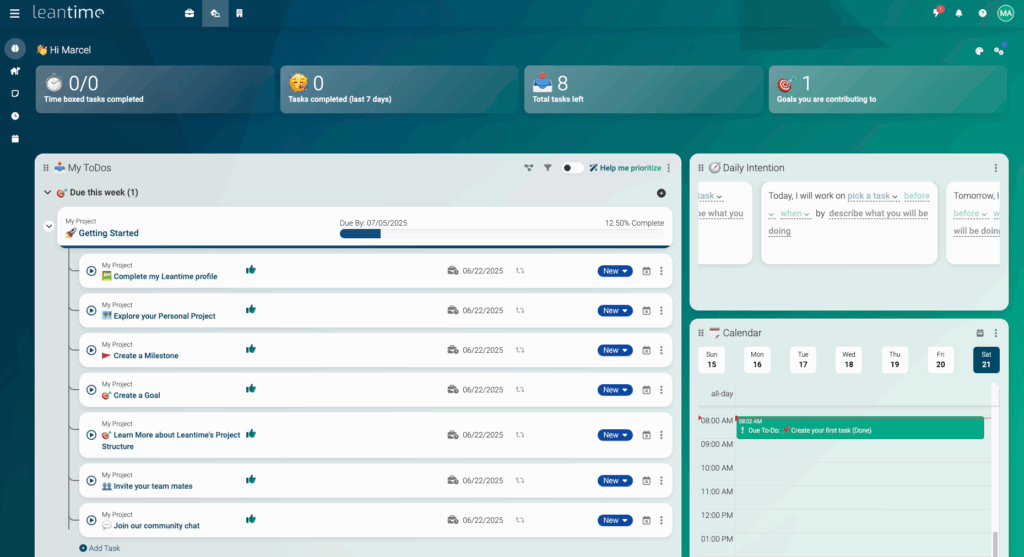
Overview
Leantime is an open-source project management tool designed for “non-project managers,” with special attention to ADHD and neurodiverse users. By blending behavioral science with AI assistance, it reduces cognitive load, improves focus, and fosters sustainable productivity.
GitHub Star: 8.2k
GitHub: https://github.com/Leantime/leantime
Website: https://leantime.io/
Key Highlights
- Human-Centered Design – Unlike complex traditional tools, Leantime’s UI reduces cognitive overload, offering simple task and goal management for everyday use.
- Personal Work Hub – Cross-project dashboards with time blocking, notes, and AI prioritization keep individual workflows organized.
- Goal-Driven Task Management – Links daily tasks to goals and milestones, adding meaning and continuity to teamwork.
Recommended Scenarios
- SMEs and startups lacking formal project managers but needing structured collaboration.
- Teams valuing inclusivity for neurodiverse members and lighter management overhead.
- Creative or R&D teams integrating strategy, tasks, and personal productivity.
Final Thoughts
Here’s a quick comparison of the 10 tools we covered to help you choose more easily:
-
NocoBase Best for: Tech teams needing flexible customization, complex workflows, and fine-grained permissions
Key traits: No-code setup, plugin-based extensions, supports hybrid agile + traditional project management
-
AppFlowy Best for: Developers who love the Notion-style workspace and want to unify notes with tasks Key traits: Docs + tasks in one, full data control, ideal for individuals and small teams
-
Plane Best for: Teams focused on issue tracking and product management Key traits: Modern UI, Agile/Scrum support, great for fast-paced dev teams
-
ERPNext Best for: Mid-to-large enterprises needing projects + finance + operations in one Key traits: ERP + project management integration, perfect for cross-department collaboration
-
Focalboard Best for: Mattermost users or teams seeking a Trello alternative Key traits: Kanban-first, simple task management, lightweight and easy to deploy
-
Huly Best for: Developer-driven teams wanting to integrate code collaboration with task management Key traits: GitHub/GitLab workflow integration, tailored for engineering
-
OpenProject Best for: Enterprises requiring both traditional and agile project management Key traits: Full feature set (requirements, plans, budgets, timelines), built for large teams
-
Planka Best for: Teams who like Trello’s minimalist approach Key traits: Lightweight, intuitive, quick to set up
-
Kanboard Best for: Developers preferring minimalism and automation via scripting Key traits: Low resource usage, highly extensible, great for tech-savvy teams
-
Leantime Best for: Teams wanting to connect strategic goals with execution Key traits: OKRs linked with tasks, human-centered design, ideal for startups and small R&D teams
⭐ If this article inspired you in choosing, deploying, or customizing a project management tool, feel free to share it with fellow developers exploring open-source and productivity solutions!
Related reading:
- Top 18 Open Source AI Agent Projects with the Most GitHub Stars
- Top 20 Open Source AI Projects with the Most GitHub Stars
- Top 8 Open Source MCP Projects with the Most GitHub Stars
- Top 7 Open Source Web Applications with the Most GitHub Stars
- Top 40 Open-source Developer Tools with the Most GitHub Stars
- Top 15 Fastest-Growing Open-Source Low-Code Projects on GitHub in 2025
